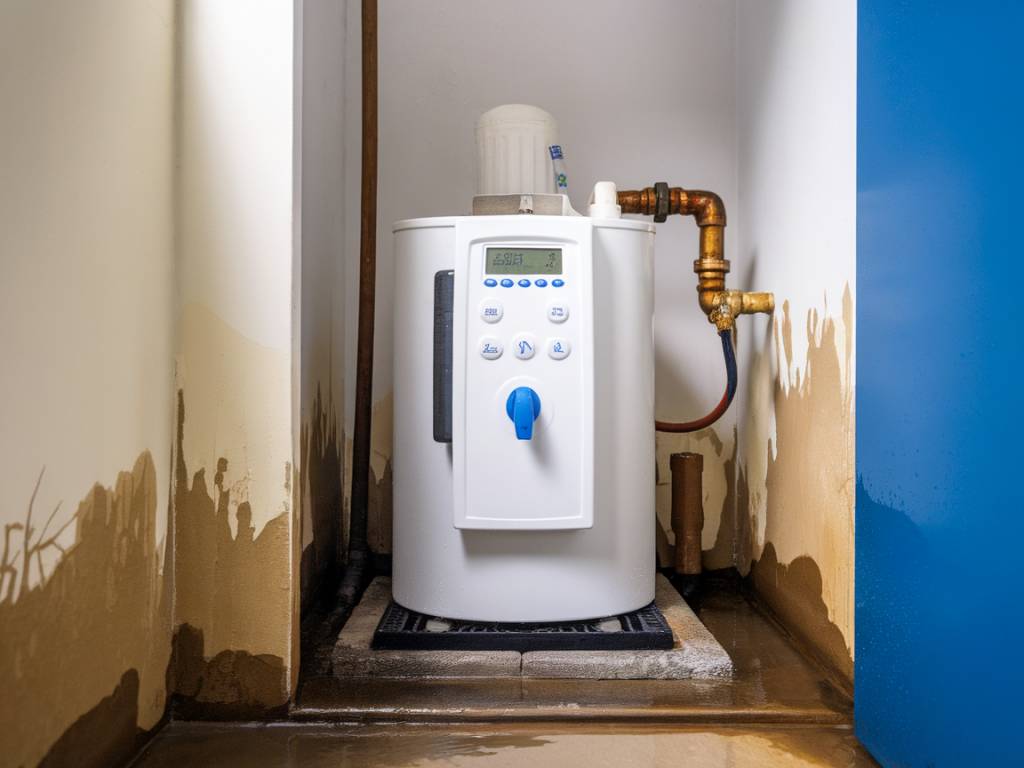Water is essential to our daily lives, from quenching our thirst to preparing our meals. Yet, how often do we think about the quality of the water running through our taps? Recent discussions have revolved around PFAS (per- and polyfluoroalkyl substances) – those pesky chemicals that seem to stick around in our environment. But did you know that your trusty water softener might play a significant role in reducing your PFAS exposure? Let’s dive into this important topic.
Understanding PFAS: The Hidden Threat
PFAS, often referred to as « forever chemicals, » are a group of man-made chemicals used in various industrial and consumer products for their resistance to oil, water, and heat. They’re found in everything from non-stick cookware to firefighting foams. Unfortunately, their persistence in the environment and potential health impacts – including effects on the immune system, liver function, and increased risk of certain cancers – have raised alarms.
Given that PFAS can contaminate water sources, it becomes crucial for us to ensure our home water supply is safe. This is where water softeners enter the stage as unexpected allies in reducing PFAS exposure.
What Are Water Softeners and How Do They Work?
Water softeners are systems designed to remove minerals like calcium and magnesium that cause water hardness. They achieve this through a process called ion exchange, where these minerals are swapped with softer ions, typically sodium or potassium. By doing so, water softeners extend the life of appliances, improve soap efficiency, and prevent scale buildup.
But can these systems also help tackle PFAS? While traditional water softeners are not specifically designed to remove PFAS, the process of ion exchange can have an indirect benefit in reducing these substances in your water. Let’s explore how.
The Role of Water Softeners in PFAS Reduction
While not their primary function, water softeners can contribute to PFAS reduction in a couple of ways:
- Pre-Filtering: Many water softening systems come with pre-filters designed to capture larger particles and contaminants. Although they might not filter out all types of PFAS, these pre-filters can reduce water turbidity, allowing more efficient chemical treatment to follow.
- Ion Exchange: As water softeners replace calcium and magnesium ions, some PFAS compounds, depending on their ionic properties, might also be exchanged, thereby reducing their concentration.
However, it’s important to note that not all water softeners are created equal when it comes to tackling PFAS. Consulting with specialists to ensure your water treatment system meets your specific needs is crucial.
Complementary Home Water Treatment Options
While water softeners can help, they should not be the sole line of defense against PFAS. Considering complementary methods can further enhance your water quality:
- Activated Carbon Filters: These filters are effective in absorbing organic compounds, including certain types of PFAS, thereby reducing their levels.
- Reverse Osmosis Systems: By forcing water through a semipermeable membrane, these systems can remove a high percentage of PFAS along with other contaminants.
- Granular Activated Carbon (GAC) Systems: Widely used in municipal treatment plants, GAC systems can be adapted for home use to specifically target PFAS.
Implementing a combination of these treatments can provide a more comprehensive solution to minimizing PFAS exposure in your home water supply.
Taking Action: A Personal Approach
What does embracing a healthier water lifestyle look like for you? When it comes to combating PFAS, knowledge and proactive measures are your best allies. Consider testing your water for PFAS presence, understanding your current water treatment setup, and consulting with water quality professionals.
Like any step toward a healthier lifestyle, reducing PFAS exposure demands awareness and initiative. It may even open doors to broader discussions about environmental health and wellness with family and neighbors. What have been your experiences with PFAS and water quality? Could simple changes in home systems enhance your well-being? These are questions to stir curiosity and inspire action.
The Path Forward: Ensuring Safe Waters
At the end of the day, safeguarding your drinking water is not just about addressing PFAS but fostering a greater appreciation and respect for the resources we use daily. The integration of a water softener, paired with other filtration methods, offers a promising avenue for reducing the risks posed by persistent chemicals like PFAS.
Water quality is something we can control to a great extent as individuals. So, while the conversation around PFAS might seem daunting, taking proactive steps—such as upgrading your water treatment systems—can make a tangible difference.
Do we know everything about PFAS yet? Certainly not. But that shouldn’t stop us from taking informed, precautionary actions. After all, when it comes to health and well-being, every drop counts.
